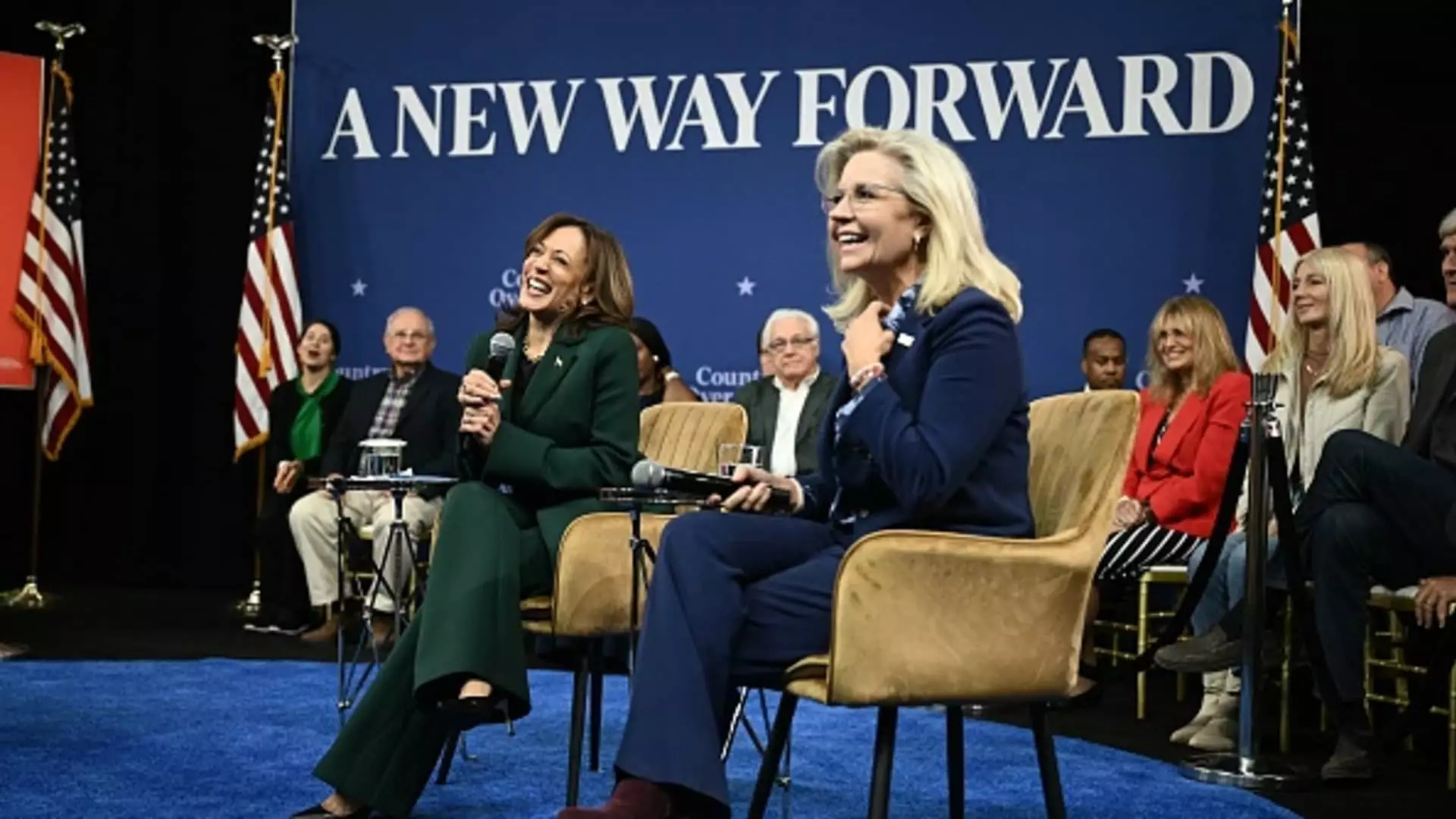In an unprecedented show of bipartisan dialogue, Vice President Kamala Harris and former Republican Congresswoman Liz Cheney engaged in a series of moderated discussions this past Monday across key battleground states, including Pennsylvania, Michigan, and Wisconsin. These states, often central to electoral battles, witnessed a unique exchange focused on integrity over partisan allegiance. The pairing of Harris, representing the Democratic front, and Cheney, a notable voice within the Republican party, marks a significant moment in American political discourse, as they both espouse a commitment to principles they believe transcend party lines.
Harris and Cheney’s discussions challenge the conventional political landscape, emphasizing a profound need for cooperation. Cheney’s assertion that “It’s not about party, it’s about right and wrong,” voiced during an event in Birmingham, Michigan, encapsulates the heart of their message. This sentiment resonates strongly amid the current political climate, which too often prioritizes party loyalty over national interests.
Cheney’s endorsement of Harris stems from a deeply conservative perspective, rooted in a shared commitment to the Constitution. In Malvern, Pennsylvania, she highlighted that her principled decision aligns with the most conservative principle: fidelity to the Constitution. Cheney’s pointed contrast between Harris and former President Donald Trump reiterates the divide between constitutional loyalty and the actions of the previous administration. This stance aims not only to rally disillusioned Republicans but also to advocate for a constitutional democracy that respects individual rights and freedoms.
Adding to the cross-party dialogue, Cheney’s declaration of being “pro-life” contrasts sharply with the current GOP’s stringent reproductive health restrictions. Her remarks on the unsustainability of draconian laws serve as a clarion call for a reevaluation of policies that restrict women’s healthcare rights, emphasizing a compassionate conservative approach. This critical viewpoint, voiced in the backdrop of significant legislative changes following the Supreme Court’s decision to overturn Roe v. Wade, shifts the conversation towards a more nuanced understanding of reproductive rights in American politics.
In alignment with Cheney’s outreach strategies, Harris’s campaign has proactively engaged with disillusioned Republicans. Launching the “Republicans for Harris” initiative in August signals a strategic effort to capture the votes of those hesitant to support Trump. This initiative invites collaboration among those who prioritize country over party, suggesting that loyalty based purely on party affiliation may be at odds with personal and national values. By amplifying the voices of notable Republicans who advocate for Harris, the campaign strategically positions itself as a coalition of the willing, bridging ideological gaps in light of shared goals.
Harris’s commitment to inclusivity extends even further, assuring audiences that a place will be set for Republicans within her administration if elected president. This commitment alone aims to restore faith in a government characterized by bipartisan cooperation, striving for a healthy two-party system that facilitates constructive discourse.
Cheney’s Perspective on Foreign Policy
Cheney’s critiques of Trump’s foreign policy are particularly striking as they resonate with the traditional Republican stance on international relations. During the discussions, she characterized Trump’s isolationist tendencies as “not Republican” and potentially dangerous for national security. Her arguments underscore a critical examination of America’s role on the global stage and present a thoughtful defense of longstanding alliances, such as NATO, which Trump has often discredited.
Cheney’s warnings about the fragility of these alliances speak volumes in an age where America’s global standing is continually being tested. She urges that without allies, the fabric of American security could unravel, a narrative that challenges the notion of America first being synonymous with isolationism. This perspective aligns keenly with Harris’s strong support for Ukraine amid its ongoing conflict with Russia, where Cheney and Harris find common ground.
Interestingly, the collaboration has not come without its detractors. Trump’s counter-narrative on social media dismisses Cheney as a “war hawk” and attempts to undermine the credibility of this unusual partnership. This response underscores the volatility that characterizes the current political atmosphere, where discussions of foreign policy and cooperation are often politicized, hampering genuine dialogue.
The ongoing transformation of political allegiances in America is both fascinating and complex. It suggests a shifting landscape where principled stances may difficulty mainstream acceptance, but offer a level of integrity that many voters may be seeking. The collaboration between Harris and Cheney illuminates a pathway toward a more inclusive political sphere, one that recognizes the importance of conscience in the decision-making process.
Ultimately, this dialogue serves as a reminder that political identity can be more than a label; it can be a platform for advocating for what is right for the country, regardless of party affiliation. As both figures continue to navigate this journey together, they illustrate hope for a future where integrity and cooperation prevail in the often-fractured landscape of American politics.


Leave a Reply